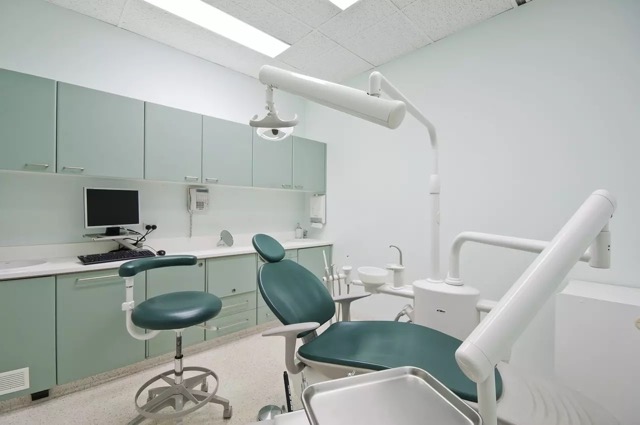It’s all in your head!
How many times have you had people tell you that they don’t hear any ringing sounds? Or, that it’s weird how you hear mouse clicks every time you open and close your mouth?
If you’ve been experiencing any of these symptoms, don’t ignore them. All those clicks and rings could be signs that you have Temporomandibular Joint Disorder, also called TMD. And, it’s time to schedule an appointment with the TMJ specialist in Calgary. Ignore these early warning signs, and you could end up with more serious issues – one of which is lockjaw, where your mouth freezes in place.
Scary, isn’t it?
Let’s Familiarize You with the Term – Temporomandibular Joint (TMJ)
To begin with, the temporomandibular joint is the hinge that connects your lower jaw with the bones of the face. Place your fingers on the points just in front of the ears and you’ll feel the joint. As long as this joint is perfectly aligned, your mouth opens and closes smoothly. You won’t notice any problems when you eat, speak, yawn, and laugh. But, any misalignment can lead to several related symptoms and problems. And, yes. One of them is that ringing sound you hear. Like our TMJ specialist in Calgary will explain, the condition is called temporomandibular joint disorder or (TMD).
Signs and Symptoms that Indicate You Need to See a TMJ Dentist
Since every person has a unique facial structure, different patients may sense varied symptoms. The signs can also depend on the particular extent of misalignment you have. Here are some of the issues for which you might need TMJ treatment. Weird sounds are only some of them.
- Pain in and around the ear which may or may not be accompanied by a ringing sound
- Pain and swelling in one or both temporomandibular joints
- Pain that extends to all the muscles of the face
- Difficulty in opening and closing the mouth
- Pain and discomfort when chewing or speaking
- Soreness in the jaw area
- Locking of the jaw joints making it impossible to open or close your mouth
- Headaches, neck pain, and tooth pain that occurs regularly
- Clicking, grating, or popping sounds accompanied by pain when you move your jaw
- Aches and stress in the temples
Surprising Symptoms that Seem Totally Unrelated to TMD
Aside from these symptoms that are obviously connected to TMD, the TMJ specialist in Calgary talks about additional signs and effects. In case you have any of these ailments, you probably won’t think about the possibility of joint misalignment. But, know that the nerves in the joints of the jaws are a part of a neural network that extends to the different sections of the face and neck. If you do have one or more of these signs, make sure you get in touch with an expert TMJ dentist right away.
- Pain and pressure in the ears without any apparent cause like infections
- Severe headaches that seem like migraines, you might also have dizziness and nausea
- A sensation of pressure that seems to start behind the eyes, blurred vision
- Pain in the neck and shoulders that seems like stress
- Increased sensitivity in the teeth despite maintaining careful dental hygiene
If you don’t get TMJ treatment in time, the condition could get worse steadily. Eventually, you could have trouble eating and swallowing and develop a bad posture.

Possible Triggers Your TMJ Dentist Will Warn You Of
Unlike other dental problems, you cannot avoid the main causes of temporomandibular joint disorder. Anyone can develop the problem, but, of course, some people are more likely to have it than others. Here are some of the risk factors that our TMJ specialist in Calgary will talk to you about.
- Irregularities in the jawbones – Many patients are born with imperfections in the structure of their jawbones. As a result, the upper and lower dental structure don’t align properly. When you eat, the added pressure of an improper overbite causes TMJ.
- Accidents or trauma – In case you’ve been in a car or any other accident where a severe blow hits your jaw, the impact could misalign the setting of the jawbones. The resultant fracture or dislocation might eventually cause TMJ. For this reason, doctors are careful to set bones properly.
- Misalignment or improper overbite – The upper and lower jaws of your mouth must be of the coordinated size and structure. In case they don’t align correctly, the joints must work extra hard so you can chew and speak. Over time, the constant stress makes movement painful. Our TMJ specialist in Calgary is trained in full mouth rejuvenation and can help you with the problem.
- Arthritis in the jawbones – Like the other joints in your body, the temporomandibular joint also has cartilage that cushions the hinge and makes movement smooth. With aging and arthritis, the cartilage and synovial liquids may wear away and cause the bones to rub against each other.
- Gender specifics – Women are more prone to developing TMJ than men.
Avoidable Triggers of TMJ
While most of the reasons for TMJ cannot be avoided, there are a few triggers that you can prevent, just as the TMJ dentist will explain.
- Bruxism – This is a condition where the patient grinds their teeth while sleeping. Some patients may also clench their teeth and jaws unconsciously even when they’re awake. The constant stress on the jaws sets off pain in the joints. TMJ treatment often includes adopting lifestyle changes to prevent bruxism and get relief from the pain and discomfort. Your TMJ dentist may also recommend that you use night guards for teeth grinding to break the habit.
- Bad posture – An improper posture can interfere with the optimum stability of the spine and other body mechanics. The strain that your spine goes through can also extend to the facial structure and jawbones years down the line. Taking steps to correct your posture can help you with the problem of TMD.
- Chewing gum – The habit of chewing gum constantly can be a stress-release activity. Many patients also take up gum to quit smoking or after meals to cleanse their teeth. But, an excess of the chewing activity can strain the muscles and joints of the jaws. Restricting gum might give you relief from the pain.
- Eating hard and crunchy foods – As our TMJ specialist in Calgary will advise, you might want to choose more of soft foods that are easy to chew. Including too many hard, crunchy, and chewy foods in your diet adds unnecessary pressure on the joints.
- Stress – Anxiety and stress are both the cause and effect of TMJ. Patients going through anxiety tend to clench their teeth or hunch their shoulders.
TMJ Treatment Starts with Identifying the Triggers
Your TMJ dentist will begin treatment by asking you a series of questions to identify the cause of your problem. She’ll also take x-rays, examine you carefully, and understand your medical history. Prepare for questions like:
- How long have you noticed the symptoms?
- Is this the first time you’ve had the pain and discomfort? Or, have you opted for TMJ treatment before?
- How far does the pain extend? To the head, ears, neck, shoulders, temples?
- Have you had any significant life changes recently?
- Have you ever noticed any activity or specific times when the symptoms start?
- Is the pain constant? Or, do you feel the discomfort only sometimes?
- Can you open your mouth to eat or yawn easily?
- Have you been taking any medications or supplements regularly?
- Do you sense a clicking sound when you move your jaw?
If needed, additional diagnostic tests can help detect the exact triggers. For instance, Ultrasounds or K7 Computerized Jaw Scanning. Electromyography (EMG’s) is also an effective test to check for misalignments, improper overbites, and a faulty posture. Patients who have extreme TMD may have to go in for a CT scan or MRI if the basic tests cannot reveal a clear picture of the situation. The TMJ specialist in Calgary will advise you accordingly.

Some Patients Respond to Home Remedies
Our TMJ specialist in Calgary will likely get you started on home remedies and light medication. More drastic measures are needed only if you don’t feel relief. You’ll try options like:
- Switching to soft foods and giving up chewing gum
- Physical therapy that involves gently massaging the joints and stretching the neck and jaw muscles. Exercising muscles improves the range of motion and flexibility.
- Placing ice packs or cold compresses on the joints to lower inflammation
- Taking over-the-counter medication that does not contain harmful steroids such as ibuprofen, aspirin, naproxen, and similar drugs. Your TMJ dentist will suggest effective pain relievers.
- Adopting stress management techniques like deep breathing and making a conscious effort to prevent clenching teeth.
- Using essential oils that have sedative properties so patients feel relaxed and can sleep better.
The Next Steps in TMJ Treatment Are Minimally Invasive
If your jaw pain and discomfort are not responding to simpler remedies, you may have to opt for a more extensive TMJ treatment plan. Here are a few ideas.
- Getting boil and bite mouth guards can be an effective first step. If you think that this remedy is providing relief, the TMJ specialist in Calgary may order a customized appliance for you.
- Depending on the particular reasons for your condition, the TMJ dentist may suggest that you wear an orthotic. This dental appliance is worn on the lower jaw and effectively nudges the jaw into its proper position. Many patients find that their TMD symptoms are improving when the misalignment or improper overbite is corrected.
- Braces and Invisalign are also great options since they are effective and get results without interfering with the day-to-day activities of the patients. Further, Invisalign braces are unobtrusive and can be easily worn by adults.
- Patients who develop temporomandibular joint disorder because of teeth grinding can opt for biofeedback and other behavior corrective therapies. These exercises can help them break the habit by consciously stopping when they realize they’re clenching their jaws.
Taking Medications for the Pain and Discomfort is Part of the Treatment
Taking prescriptions to get relief from the pain is yet another option. Your TMJ treatment may include medicines that specifically target jaw pain. Depending on the severity of your discomfort and other symptoms, doctors may suggest basic painkillers or muscle relaxants. Medicines that can lower the inflammation in the tissues around the joint and relieve muscle and nerve pain can also be helpful. Patients that show signs of TMD because of stress and anxiety may find that taking sedatives for better sleep patterns and anti-depressants also help with the TMD. Certain states have legalized using medical marijuana. If you live in these locations, the dentist may suggest taking the pills. However, it is important that you use them only under the directions of your doctor.
Injections in the Joints Can Relieve Discomfort
Often times, experts in TMJ problems suggest getting steroid injections. These shots are given inside the affected joint to ease the inflammation and discomfort. Botox is another nerve relaxant and has been found to be effective. Although the option is as yet experimental, you could consider it as an option. If you’re open to alternative healing techniques, getting acupuncture could help.
Temporomandibular Joint Disorders Can be Treated Successfully
Should you visit Dr. Jennifer Silver, our TMJ specialist in Calgary, she’ll reassure you that temporomandibular joint disorders can be treated successfully. Doctors typically suggest non-invasive options and medicines to help you. In rare cases, patients may need more drastic steps like jaw surgery or full mouth reconstruction that could take around 6 to 12 months of recovery time.
Dr. Silver will conduct a detailed examination and advise you on a course of action that can take away the pain. You’ll soon go back to your regular activities without the ringing in your ears or clicking sounds. For more information about how the treatment works, do contact us at our Southcentre Dental clinic. Put down your contact details on the Contact Us form and we’ll get back to you with responses to your queries. You can also call us at this number: (403) 273-1415 to talk to one of our team members.
References:
